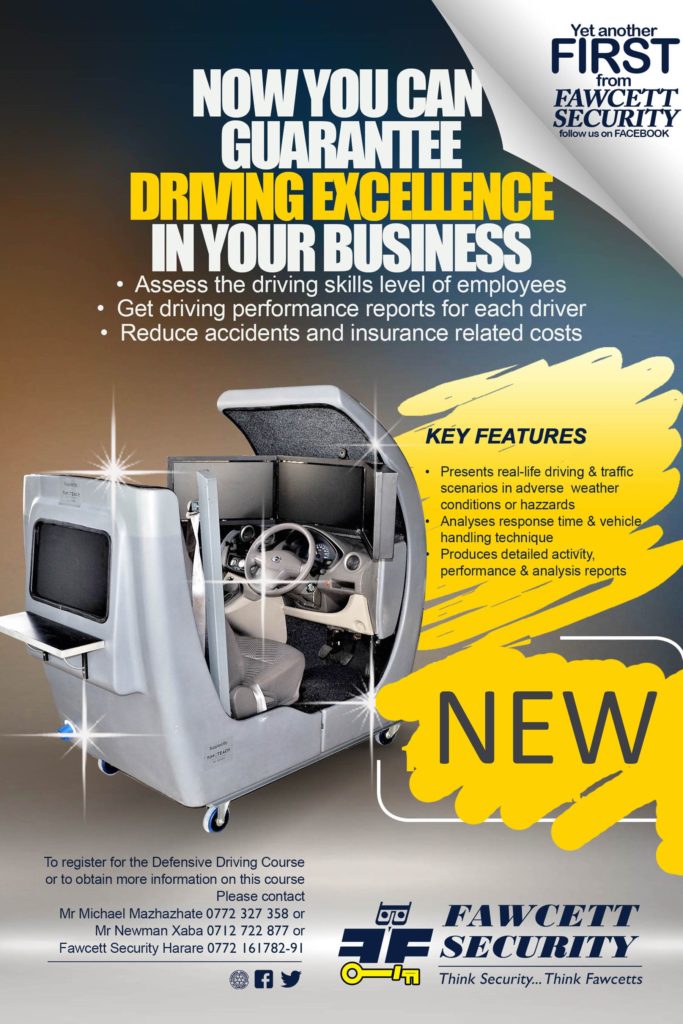More on the NEW Driving Simulator
NOW YOU CAN GUARANTEE DRIVING EXCELLENCE IN YOUR BUSINESS.
A successful launch was held on the 15th June 2017 with many attendees and a very positive feedback.
A brand new offer in Zimbabwe proudly bought to you by Fawcetts.
What is a simulator?
A simulator is a device which places an individual in a situation which resembles real driving. The individual controls the commands which are the same as those of a real car. With the development of computer-generated images, it has become possible to recreate a complete virtual environment (including roads, indications, vehicles, etc.) in an entirely interactive way. The computer recreates a virtual landscape with vehicles, and the learner driver can move in this universe with complete freedom.
A simulator is a convenient instruction tool for improving the level of training when the training infrastructure in a specific country is less developed. Research increasingly indicates that simulator training can contribute to the improvement in novice drivers of higher order skills like hazard perception. In well-developed training programmes for simulator training the learning curve rises sooner than without the use of a simulator.
Why bring a simulator to the training of an activity as complex as the driving of a vehicle?
- The anxiety of the pupil is decreased.Training happens in a safe environment without stress, which enhances learning.
- Situations which one cannot see while driving (skidding of the clutch for example) can now be visualised.
- Because the driving environment is entirely controlled, the focus onprogressive teaching objectivesis more concentrated.
- A simulator makes it possible to follow a progression established in advance and to evaluate the trainee’s performancein a methodical manner.
- The trainee can be put in and made accustomed to situations that do not occur frequently on the road. A simulator training environment is without risk and thus authorizes experimentation in dangerous situations.
- A simulator ensures standardised driver training, thereby guaranteeing a level of quality for all students, resulting in safer driver behaviour.
- Simulation can immediately output the results of the training. This means that a trainee can quickly know his mistakes and take corrective action.
- Fewer hours on the road reduces fuel consumption, which is good for the environment. One hour in the simulator gives a CO2 emission of 13 times less than one hour in a car.
- The simulator ensures high quality training in less time and at lower cost.
- The driving simulator is very suitable for trainees who have a fear of driving.
- Driving simulation integrates with classroom sessions.




